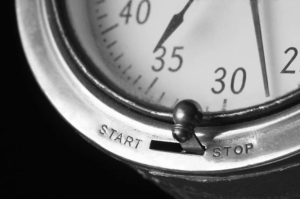 It occurs to me that maybe not everyone has the same view of timekeeping that I do. So I thought I’d make the case for good timekeeping. To me, it’s about coping with change.
It occurs to me that maybe not everyone has the same view of timekeeping that I do. So I thought I’d make the case for good timekeeping. To me, it’s about coping with change.
To me, it starts with respect. This includes respect for the audience, the speaker, topic, and context. There are times when timekeeping should be lax, I believe. My first take is that the defining circumstances are when there are no people involved who aren’t already part of it, there’s not a fixed time agenda, speaker times aren’t set, and the outcome is more important than punctuality.. In other words, rare for a public event.
When an event is public, there tend to be some other constraints. Most importantly, there’s liable to be a schedule. People need to know when to arrive. If it’s a more than one event in the schedule, extending beyond 1 hour, and the audience is diverse (e.g. not just one company), time becomes increasingly important.
Why should we care? Back to the starting point, people might be coming in to see someone in particular. If the schedule isn’t adhered to, folks who were counting on a particular time could be disappointed. If there’s a start and end time, and block, speakers further down the agenda could be impacted if someone runs long. Neither is fair.
I have experienced folks who seem to be unaware of time. In my personal experience as a speaker, I was on a joint presentation where the leadoff presenter seemed to forget that there was anyone else on the agenda! He was gracious once it was pointed out, but it was uncomfortable for me to have to break in and remind him. I’ve also seen people unaware that they were running long, and others unable to amend their presentation on the fly when they did become aware. I’ve literally seen someone have to stop where they are instead of finding a way to wrap up!
Having had early experience being a moderator, after being the victim of such sessions, I made a commitment (in line with the event organizer’s intent) to be rigorous. I’ve now no qualms about, after giving fair warning, stopping someone who hasn’t maintained control. To the contrary of a possible position, I think it’s rude not to! It’s the speaker’s fault, no one else’s. They aren’t being professional and respectful of the audience and the other speakers. That also includes getting out of the way in a timely manner if it’s a scheduled room, leaving time for the next person to set up.
So my guidelines for timekeeping:
- Designate someone as the timekeeper; there can’t be a question over who’s job it is.
- Warn speakers ahead of time about the rigor and practices. No excuses!
- Have a practice for signaling if things are getting close, e.g. signs for # of mins left, colored lights, messages in chat (tho’ some people seem unable to process them; beware), what have you.
- As a presenter, if you don’t have a good basis for assessing your likely length (e.g. I’m about a slide a minute, though with some quick builds it can be faster), practice and check your timing! Realize that live it’s likely to go a bit longer than your practice. Trim if necessary.
- Also, have enough awareness of your material that you can adapt on the fly. Sometimes other things happen (once the power went out in a presentation), and you have to adjust.
- Be firm; interrupt and stop speakers when it’s time.
That’s off the top of my head; I’m sure there are more comprehensive and thorough lists. My point is to be aware, and prepared. As a speaker, I appreciate it. As an audience member as well. That’s my case for good timekeeping. What do you think?
Leave a Reply